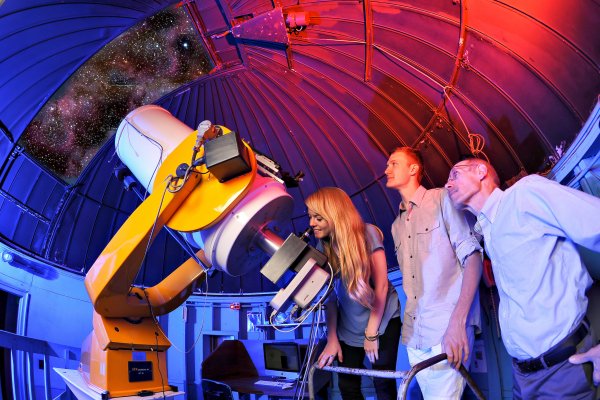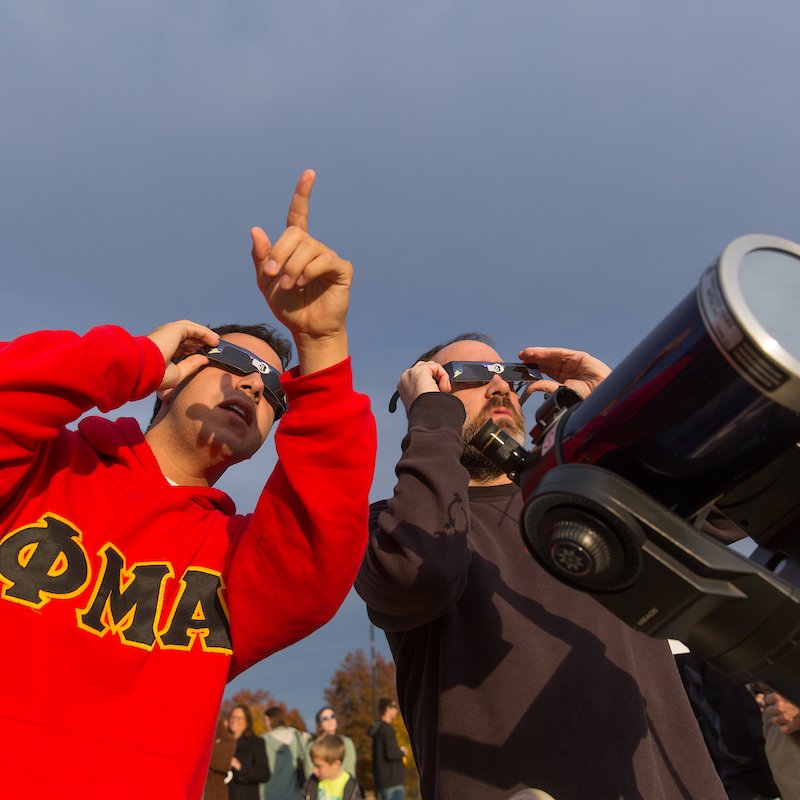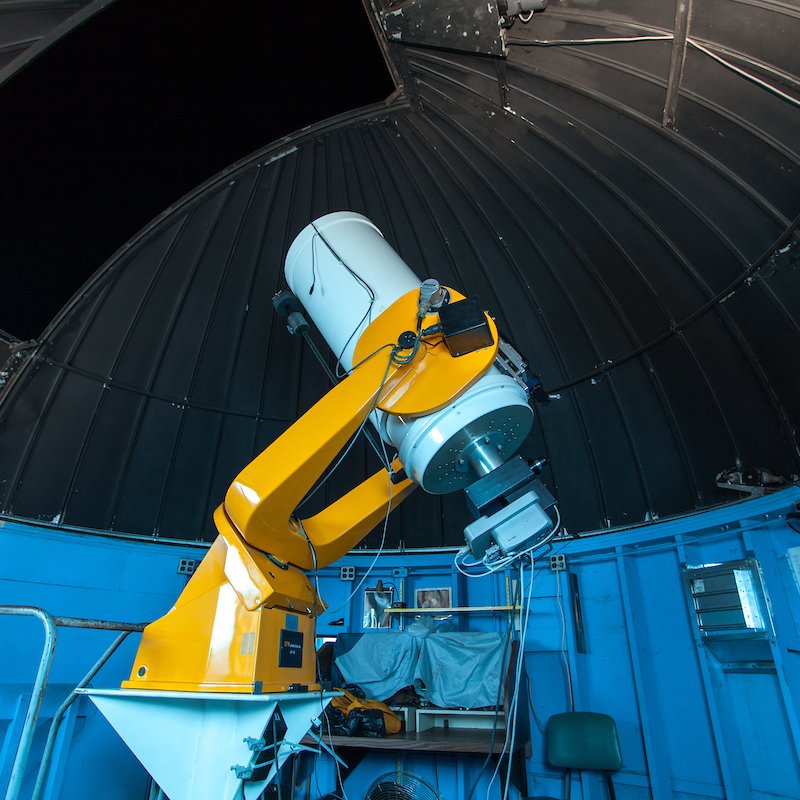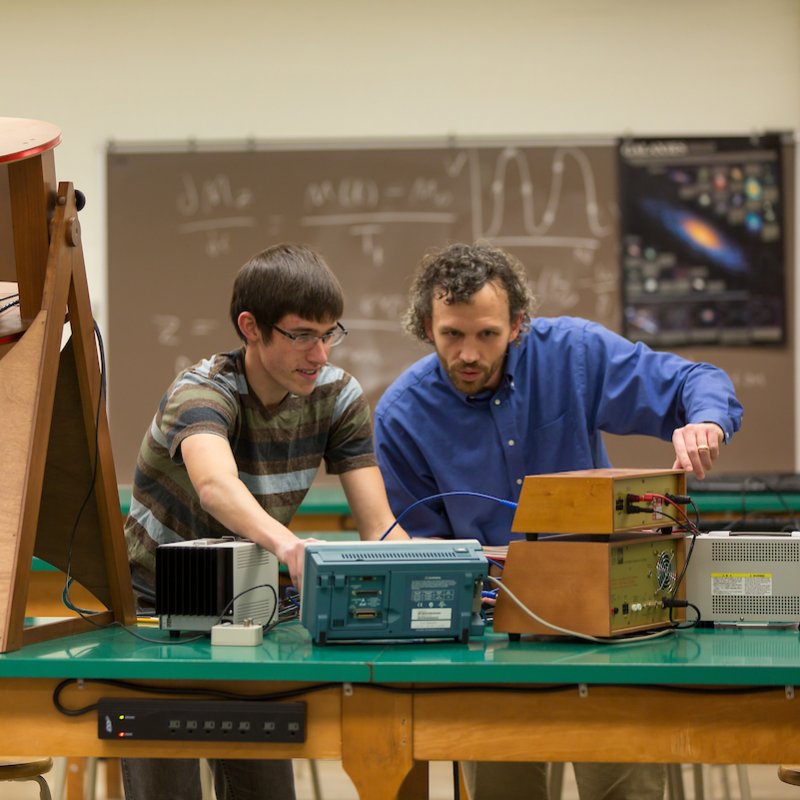PHYSICS & ASTRONOMY
The Department of Physics and Astronomy at Valparaiso University is dedicated to your quest to explore the fundamental nature of the physical universe.
Announcements
Campus Observatory Open House Program for Winter/Spring 2025 (find the observatory in 7D on this map)
Physics & Astronomy Colloquium Schedule for Spring 2025
Nuclear Physics Group Awarded $362,000 Grant Renewal
Dr. Hillwig Awarded $217,400 NSF Grant for Binary Star Studies
Faculty
With six professors and around 25 majors, the department has a small student to faculty ratio, allowing students to benefit from personal relationships and one-on-one advising.
All faculty members also conduct research, and they use those projects as opportunities to mentor students in the lab. Their research and expertise includes:
- Nuclear & Particle Physics
- Observational Astronomy
- Computational Condensed Matter
- Nanoscience
Facilities
Valpo students have access to research-grade laboratories and multiple astronomical observatories.
With the help of the physics and astronomy faculty, students learn how to use these tools to probe the smallest particles and the widest reaches of space.
Mission Statement
The Department of Physics and Astronomy at Valparaiso University is dedicated to the study, research, and instruction of the most fundamental structures of our physical universe, seeking to find and characterize orderliness in a seemingly complex environment ranging from the most elementary constituents of matter to objects of the astronomical realm.
This study and research is motivated by a conviction that there is an underlying order, symmetry, and beauty in nature, which are God’s manifestations.
We enthusiastically strive to communicate this knowledge and its limitations; to motivate students to achieve a greater understanding, appreciation, and support of scientific inquiry; to overcome widespread scientific illiteracy; and to promote the development of morally responsible citizens, concerned about our environment and our society.



